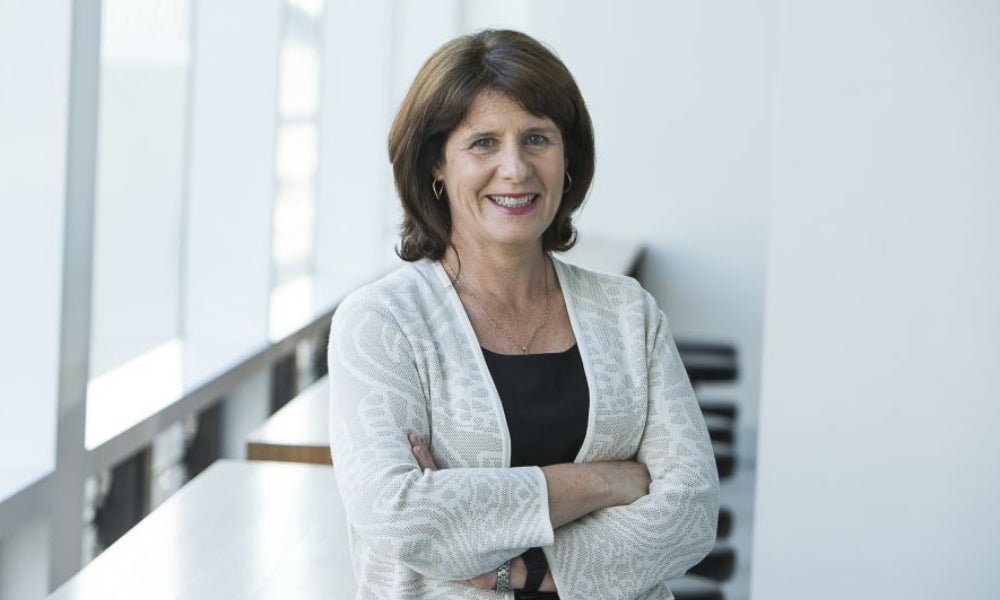Three critical steps to an ethical and sustainable supply chain
Download The Business Of podcast on your favourite podcast platform.
Supply chain risk management has come into sharp focus with increased demand for ethical and sustainable supply chains from consumers, regulators and shareholders
Global supply chains play a significant role in the world economy and the sustainability and resilience of societies and ecosystems worldwide. However, they also contribute to exacerbating social issues and environmental degradation.
In recent years, it has become painfully clear that unsustainable production is speeding up climate change. There is also an inextricable link between modern slavery, unsustainable production, and environmental degradation.
Despite recent advances in regulation, law reform, and technology that have increased the business world’s capacity to create ethical and sustainable practices, embedding these practices into global supply chains remains a challenge. With legalities like Australia's Modern Slavery Act taking effect, there are serious consequences for companies that don't comply.
In a recent episode of the AGSM Business of Leadership podcast – and the first in The Business of Supply series – AGSM MBA alumna Frances Atkins, Co-Founder and Director of technology platform givvable, along with Tracy Wilcox, Associate Professor at UNSW Business School, joined host Associate Professor Michele Roberts, Academic Director of AGSM at UNSW Business School, to discuss the potential solutions and obstacles to addressing this critical social and business challenge.

'Running out of time': Modern slavery in supply chains
Research by the UNSW’s Australian Human Rights Institute shows many Australian companies still fail to comply with the basic reporting requirements of the Modern Slavery Act. So why are so many companies still failing to act?
Part of the problem is that supply chains have become truly global in scale, explained Associate Professor Wilcox, which she said has allowed the human cost of supply chains, and the environmental cost, to become hidden. “Consumers, the people that buy the products, really don't have visibility over what's going on,” she said.
“Layer on top of that the complexity of sustainability and ESG as a concept… you may have a strong performer in one area but not so strong in others, and how do you deal with those challenges?” said Ms Atkins.
Read more: Is modern slavery in your supply chain? Business is failing to act
Other complexities further compound the issues. For example, many global companies don't want to disclose who their suppliers are for competitive reasons, explained Ms Atkins. So visibility remains a challenge across different supply chain stages. Despite these complexities, however, Ms Atkins said there are no excuses for organisations not taking action on sustainability.
“There are tools available to them now to get the visibility, to get the data, to get the insights they need to start making better decisions,” she said. “We’re running out of time. We need to start somewhere. And the longer it takes for organisations to take that first step and to take action, we're just not going to meet the targets that have been set for us. So it's two things: it's, there are no excuses, so you've got to take action; and secondly, let's accelerate that action through incentives,” she said.

What kind of incentives and action steps should businesses take towards ethical and sustainable supply chains? Here are three of several examples they discussed:
1. Businesses must be held accountable to improve supply chain ethics and sustainability
As a starting point, Ms Atkins said the first thing companies need is a mandate from the board and the C-suite; there needs to be accountability, measurable targets and KPIs, to drive a culture change and shift people’s priorities on a deeper level.
“Because it will not work throughout an organisation unless you've got that strong mandate. And more than that, we need targets. We need specific metrics that the organisation, the people that tasks we're executing on this, that they've got metrics that they can track against. And this is incredibly important because if you don't have those things if people aren't accountable, you just won't get things done. You won't get the budget allocated and will just end up not making progress,” she said.
In agreement, A/Prof. Wilcox explained: “If you've always been thinking of supply chains in terms of a race to the bottom to try and get the best price and maybe the best technology, and you're not thinking about the people on the planet side of things, then it is a mindset change, and it is a culture change.”
But much of the above will also require regulatory systems to raise the bar collectively. “So if you want regulation to have teeth, then there has to be some kind of sanctioning. And we saw this with gender equity legislation for years and years and years. If you want something to change, there have to be consequences for not complying with it. And I think that's really where we need to go if we are serious in Australia about the modern slavery issue and trying to eliminate that in our supply chains,” said A/Prof. Wilcox.
Read more: Demand fulfilment: a key to supply chain management sustainability
2. Adopt technology solutions for supply chain issues
According to A/Prof. Wilcox, there’s a lot more organisations can do when it comes to utilising technology and data analytics to drive ethical performance. “I think using technology a bit better to understand your supply chain better. It's interesting how few organisations have a good handle on the complexity of their own supply chains when you go down to those lower tiers.
“So having that visibility and some of the large companies are doing that really well, [companies like] Patagonia map it out quite well,” said A/Prof. Wilcox, who added that technology has many capabilities but needs a strong culture and mindset behind it. Otherwise, it may become green-washing and not work in practice.
In agreement, Ms Atkins said businesses shouldn’t be making sustainability claims about their performance unless they understand exactly how their suppliers perform. They will need digital tools to achieve this.
“Supply chains is one of those areas where it lends itself to leveraging the technology available to us, whether it be artificial intelligence (AI), statistical analysis, big data, advanced analytics, all that kind of thing to be able to enhance their understanding of their supply chain. When you look at the supply chain, given the complexity, the breadth of ESG issues, and then typically large organisations have thousands of suppliers, that lends itself to a technology solution. Getting that sort of data and insight at that scale requires organisations to take advantage of what's out there today,” she said.

3. Back ethical and sustainability claims with evidence
With so many websites and brands claiming to be ‘ethical' and ‘sustainable’ these days, how can businesses that genuinely want to do good avoid greenwashing and even tell the difference when choosing an ethical supplier?
Very little, if any, weight is being placed on self-reported claims of suppliers on sustainability and ESG, explained Ms Atkins. “It really needs to be backed by evidence. Because of a procurement and sourcing workflow, the time at which decisions are made, ultimately, businesses need to be able to run their business. So how do they get this into a workflow?
She said that organisations increasingly look to third-party validated credentials around these sorts of things to avoid the risk of green-washing. “Again, not all credentials are created equal. It can be a very complex space and requires translation, but there are tools that do that. And obviously, givvable is one of those,” she said.
“But ultimately, I think there's a lot of learning that needs to happen. For a procurement and sourcing person that's sustainability is not really in their tool kit. It just hasn't been a part of the skill set that they've had over time, but now it is.
Subscribe to BusinessThink for the latest research, analysis and insights from UNSW Business School
“And so we do really need to skill up and make that function aware of what all of these things mean so that they can go through a procurement workflow in a timely fashion and be confident that they're making the right decisions.”
Listen to the full episode on The Business of Work by downloading the podcast here, or for more episodes in the series, click here.
